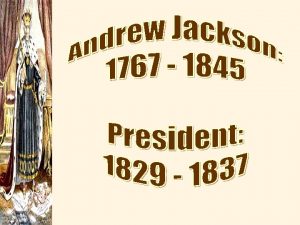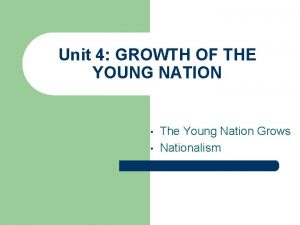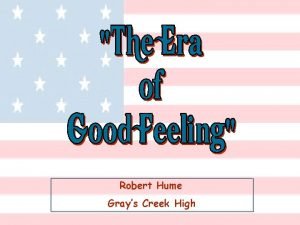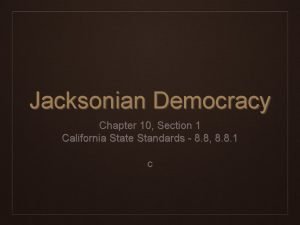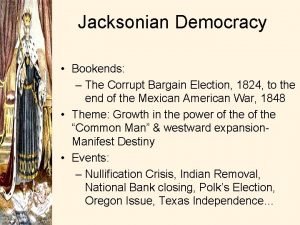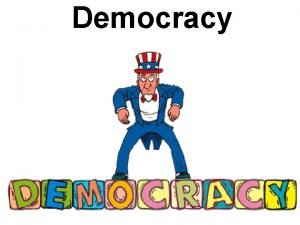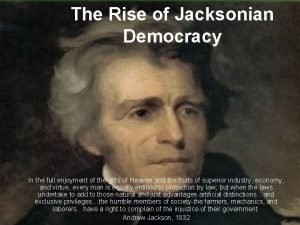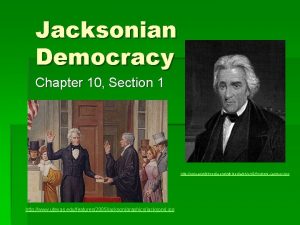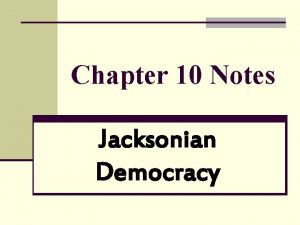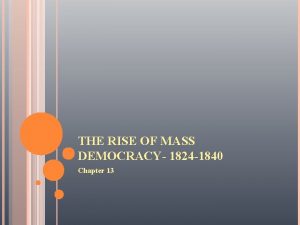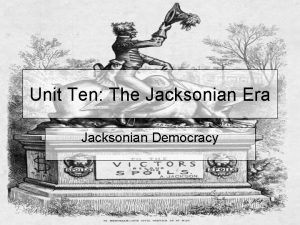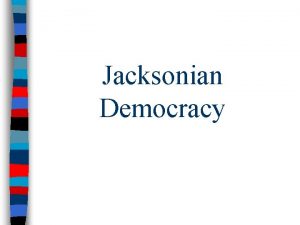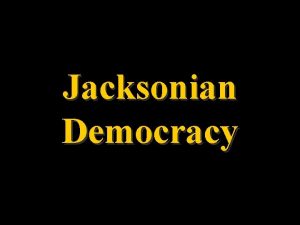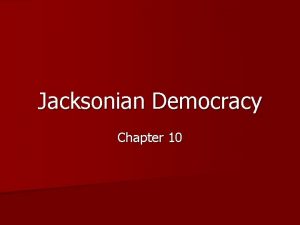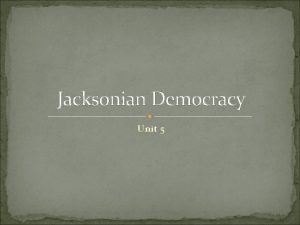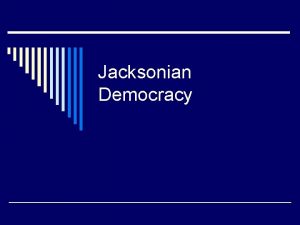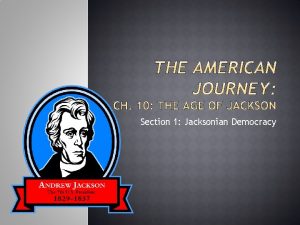Jacksonian Democracy 11 1 Election of 1824 Four











- Slides: 11

Jacksonian Democracy 11. 1

Election of 1824 • Four Republican Candidates – William H. Crawford – Andrew Jackson – Henry Clay • Speaker of the House – John Quincy Adams

No Clear Winner • Jackson won popular vote • No candidate won majority • Rule says House chooses

Striking a Bargain • Clay and Adams unite to defeat Jackson – Clay used influence as Speaker of the House – Adams elected President – Clay appointed as Secretary of State • “Corrupt Bargain”

Adams Presidency • Wanted to make improvements – Improve roads and waterways – Build a national university – Support scientific research • Opponents felt government shouldn’t spend taxpayers money on such things

The Election of 1828 • Two parties – Democratic Republicans • Support Jackson • State’s Rights • Limited central government – National Republicans • Support Adams • Strong central government • Mudslinging • Jackson victory

Jackson as President • Patriot, self-made man, war hero • “Old Hickory” • Equal protection and equal benefits – More (white men) voting than ever before

Spoils System • Democrats disturbed by government bureaucracy – Wanted to open government jobs to all types of people – Jackson fired federal workers and replaced with his friends

Electoral College • Caucus replaced with nominating conventions

The Tariff Debate • High tariff on European goods – Supported by Northeastern factory owners – Opposed by Southern plantation owners • John C. Calhoun – States have the right to nullify a federal law if it is against state interests • Daniel Webster • Nullification would destroy the union

Andrew Jackson • Supported Webster’s views • SC passed the Nullification Act – Would not pay high tariffs – Threatened to secede • Tariff gradually lowered, – Passed Force Bill • Allows military force to enforce acts of congress • SC accepted tariff, but nullified Force Bill
 Election of 1824
Election of 1824 What is the main idea?
What is the main idea? Election of 1824
Election of 1824 Chapter 10 section 1 jacksonian democracy
Chapter 10 section 1 jacksonian democracy What is the jacksonian democracy
What is the jacksonian democracy Corrupt bargain political cartoon
Corrupt bargain political cartoon Examples of democracy
Examples of democracy Jacksonian democracy
Jacksonian democracy Chapter 12 lesson 1 jacksonian democracy
Chapter 12 lesson 1 jacksonian democracy Chapter 10 section 1 jacksonian democracy
Chapter 10 section 1 jacksonian democracy What is jacksonian democracy? *
What is jacksonian democracy? * Maysville veto
Maysville veto
